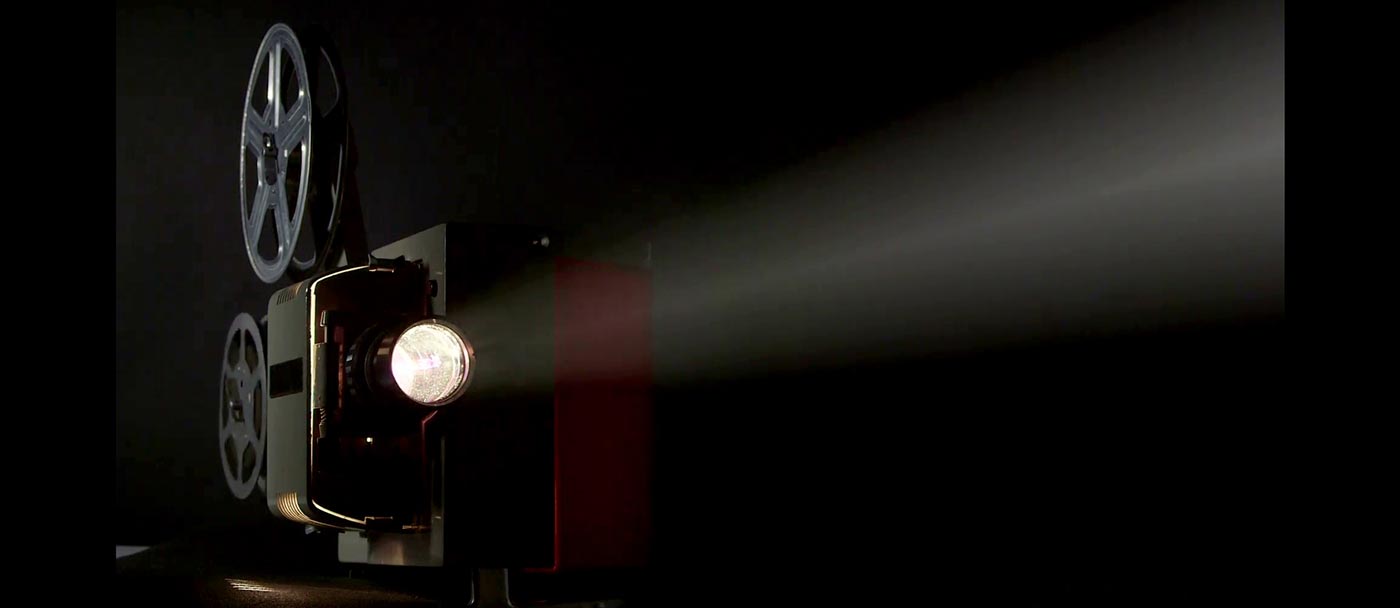
“I stretched back and I hiccuped, and looked back on my busy day, eleven hours in a tin pan, god there’s got to be another way” Pete Townsend (The Who). That’s a lyric I’ve always loved as I, like most, translated it to mean what I was feeling at the time I’d heard it, only somewhat as Pete intended it. I take it to mean that after yet another endless day at work, I reflected that sitting in a cubicle doing another’s bidding is such an existential waste of my time. There has got to be another way to live rather than selling your time for a dime, in some soulless job. There has to be a way to utilize my time in a more substantial, engaging, and intellectually
rewarding way.
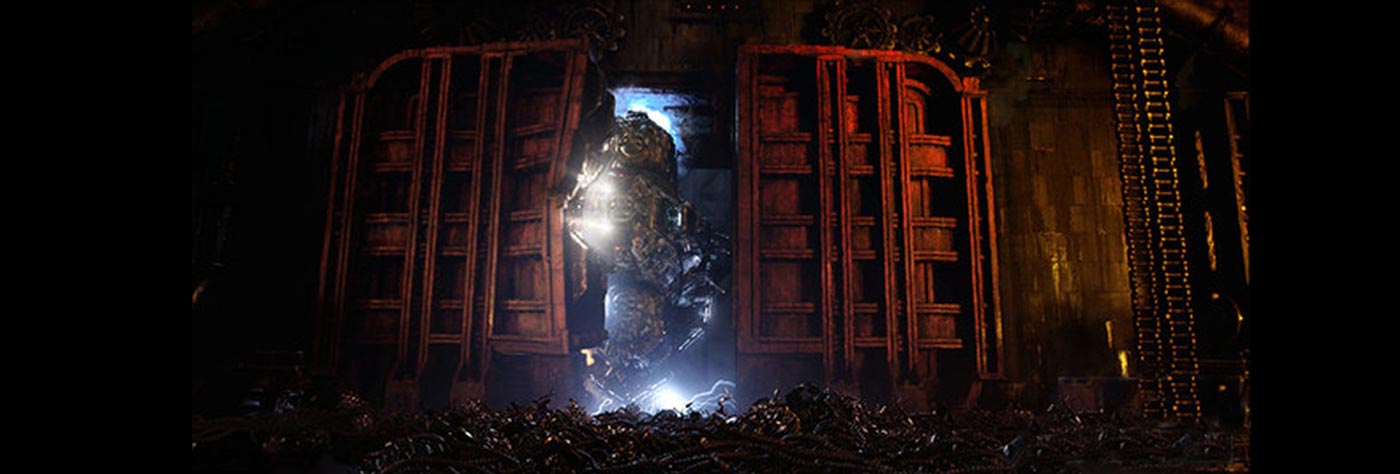
And there was. In filmmaking I found my bliss and developed a fascination for every craft thats a part of it. For some reason this whole routine of crafting motion pictures, all the art and technology brought to bear, I found it to be an endlessly rewarding environment to be a part of. So once I got rolling in my career I quickly became interested in expressing ideas with a passion and motivation that had prior been foreign to me. I found that I loved the process of learning and applying skills in problem solving on the job, and original works of art on and off the job.

As the market for VFX and animation grew and more and more aspiring artists entered the industry it became increasingly hard to find work. There were few companies in the mid 90’s to find opportunities, and so one had to be clever in finding a means to get noticed. At the time the big companies like Pixar, Tippett, ILM, PDI, DD, Imageworks and others had demo reels submitted to them by the hundreds per month. You were lucky if someone even looked at your reel somewhere in those piles of tapes. And as I didn’t know anyone in California (moving there from Maryland on the east coast) I found myself submitting on average 100 VHS demo tapes to these companies every year for about 8-9 years without hardly a response “thank you for your submission” card in the mail in return.

So I thought about why I got into this career, and what it’s worth to me even if I never got a decent opportunity, would I still want to do it. My answer was clear, I chose VFX and animation for the same reason I picked up the guitar, that I wanted to be involved in something that had such depth that I wouldn’t be able exhaust my interest in it in a lifetime. And if I could actually make a living at it I’d have achieved a seamless life, one where I wouldn’t have to trade my time in a soulless job in exchange for an alternate life with the little time left over. Instead I would love what I do and it would cease to be work.

And so it went where I plied my trade on interesting jobs as a freelance artist and then eventually started my own company Curv Studios. At Curv I finally had a team that I loved to work with and the process of creating original works of art with. When we were busy we served clients and always added a little more soul to the machine of our labor, and when we were light on work we’d jump right back into our original projects.

I still longed to work with and for master craftsmen on high-profile feature films yet my small company simply wasn’t in that league nor was the work we were creating setting us up for such. Then one day, as luck would have it, I threw a bbq for some friends and met a fella who worked at Tippett Studio in Berkeley. He was in the process of hiring for Phil Tippett’s “Starship Troopers 2” and I expressed interest. I recall him saying that he was only hiring entry level students directly out of school and that I, supporting a family of 3 and running a small company couldn’t possibly work for the low wage that the single students would be able to. So I told him that this decision is about a lot more than money to me and that I could take the reduction in wages for 1 year, with the hopes that after that time served hopefully Tippett would gauge my true value and raise me to an appropriate level I could manage. So he said alright I’ll get you an interview.
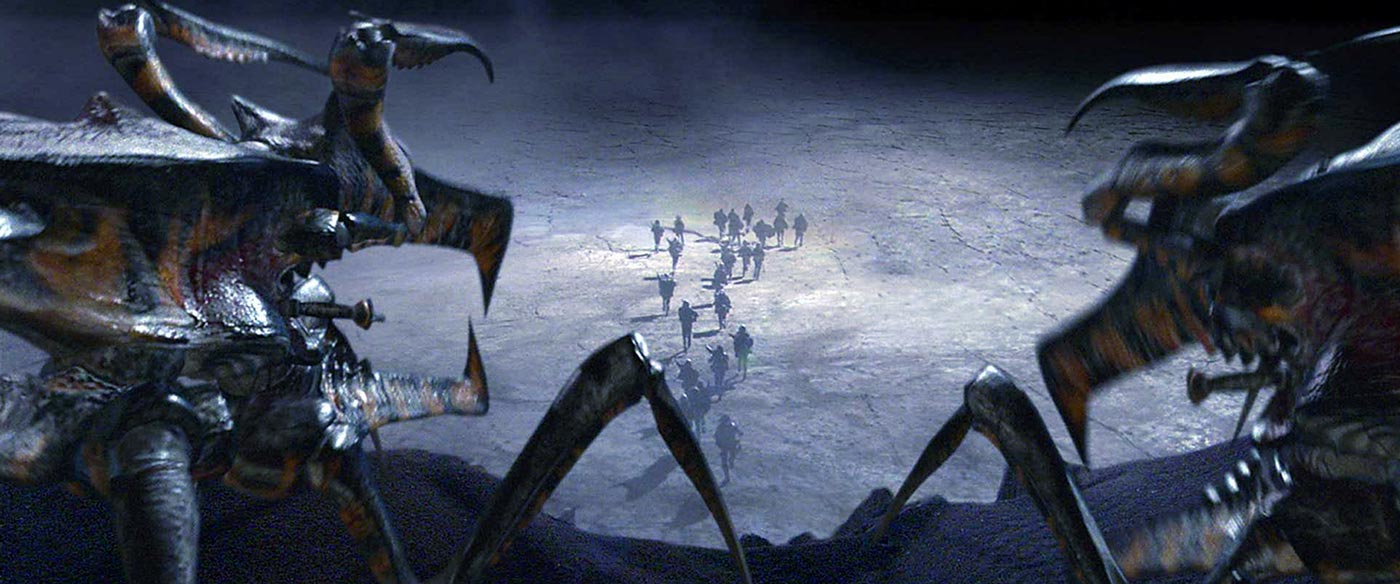
4 months prior to my interview, client work had all but dried up at Curv Studios and I had decided to create what I called a “dynamic painting”. A single 20 second VFX shot of the Buddhist temple Swayambhunath in Kathmandu, Nepal, set in the Himalayas called “Shambhala”. The shot featured the ornate temple, with many lines of prayer flags blowing in the wind, macaque monkeys, a Buddhist monk with flowing crimson robe, the Himalayan mountain range, snowfall, torches and a moonlit sky. I chose this subject for its intellectual and aesthetic content, both which inspired me. Technically I found many challenges I’d need to overcome which I’d been excited to take on and learn. Of the skills I had yet to learn which would be required were, Cloth simulation for the wind blowing prayer flags and monk’s robe, fur for the monkeys, modeling and textures to produce a mountain range, and more. The key though was that I loved the process of learning and challenging myself, and found it rewarding all the way through. Shambhala wasn’t created for a client, nor for any monetary or other gain, it was rather exactly what I wanted to be doing with my time off.

The week following the bbq I showed up at Tippett Studio for my interview (www.tippett.com). I was led into a conference room where approx a dozen people were waiting. After a long interview where many questions were asked about my current work, and a viewing or two of my demo reel, the group departed. I wasn’t feeling very confident and thought their decision could really go either way. Eventually the dept manager stepped in and I thanked her for the interview and the potential opportunity I so hoped might follow. I got up intending to follow her out, then she got a signal from someone and turned and asked if I could stay longer. I said yes, thinking maybe I’d get a tour of this seminal studio whose history included contributions to so many of the films I’d loved, from Star Wars, Jurassic Park, Dragonheart, Evolution, Blade, and more. I thought that’d be a nice consolation prize for those who got the interview, but not the job.
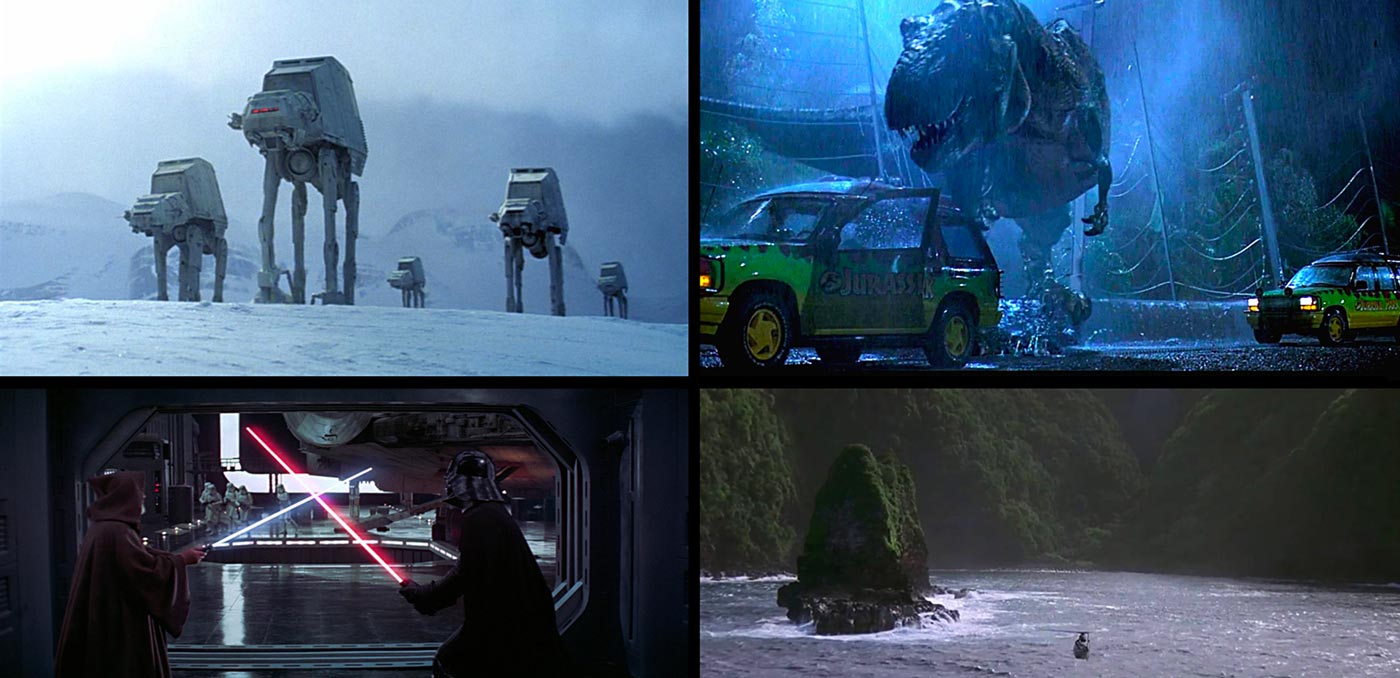
In walks a large bald fella dressed in white head to toe along with a rather gruff associate in tow. They were introduced as the VFX Supervisor (Craig Hayes) and Compositing Supervisor (Matt Jacobs) on The Matrix Revolutions (another Film Tippett was currently working on at the time). They asked if I’d mind enduring a second interview which of course I did not. I had brought with me a demo reel of commercial work (full of IMAX Films, game Cinematics, tv commercials) and “Shambhala”, my Independent work of art. They asked to review Shambhala repeatedly and asked many questions about it, technical, creative and more so ‘why’ I’d made it in the first place. Honestly I told them Shambhala was where I was at creatively and represented exactly what I wanted to learn how to express. That I loved working with new technology and almost sculpting it into something reflecting what I’m inspired by. They nodded as if kindred spirits who understood before the words even came out. I started feeling insecure, like this piece wasn’t at all representative of my diverse skill set and informed them repeatedly that I had a full commercial reel of work to share. To my surprise they said they simply weren’t interested in seeing my reel. I resisted respectfully stating it shows clearly more skill than what Shambhala shows.
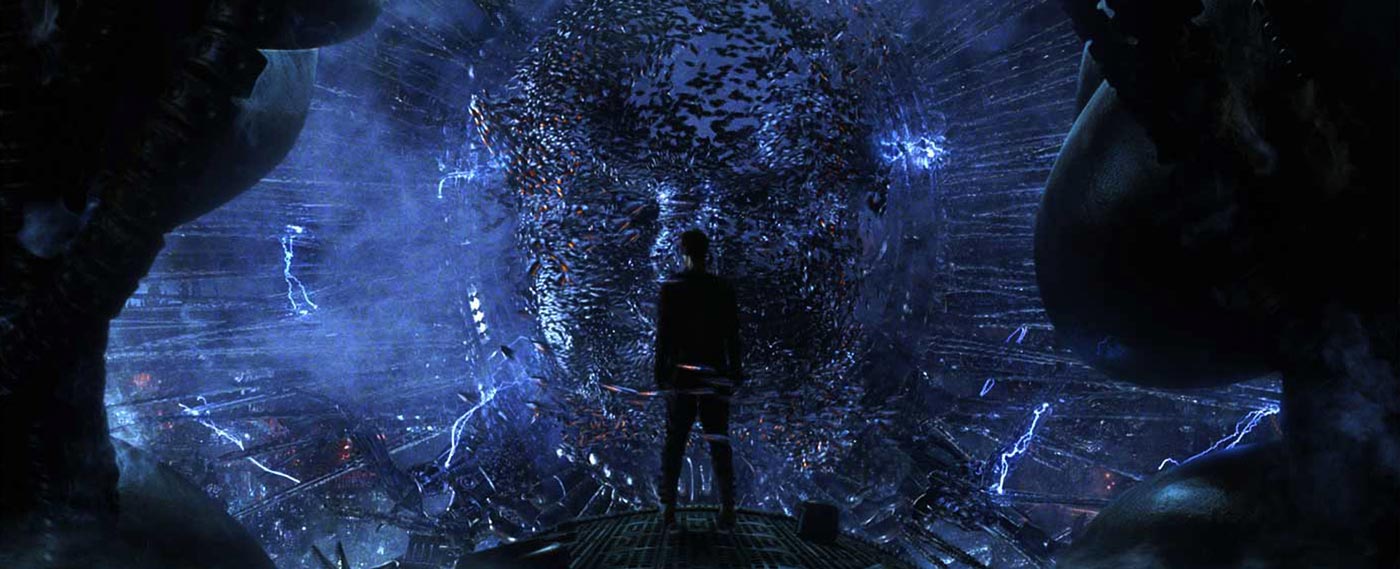
Craig then says to me something I’ll never forget, something I always wanted to hear, and something maybe now near 17yrs later, I’m recalling with the jist of his words and certainly not verbatim. He said something to the effect of, “Ari we came in to see your personal creative work because that’s what we’re looking for on the Matrix. Many simply produce demo reels and go looking for a job, however thats no indicator they are trying to take their art to the next level, nor our films. We want artists who know who they are and what they want. And are willing to take this journey with us.” Shortly after they both departed without saying anything more
conclusive.

I was floored, never having heard anyone speak to me in my own language as it were, who also were as successful at their game (Tippett is a multiple Academy Award winning studio). I’d thought that once you worked at such a place compromise would dilute these ideals that drive artists, that a more assembly line mode of production would be the norm. Tippett re-kindled my faith that ensuring soul is part of the machine of commerce is exactly where seminal filmmaking comes from, from inspired craftsmen who know exactly who they are and why they do what they do. And it ain’t for the paycheck alone. This is the mistake, and conceit many who lean towards conventional management practices make. Great works of craftsmanship and art are not driven entirely by financial motivations.
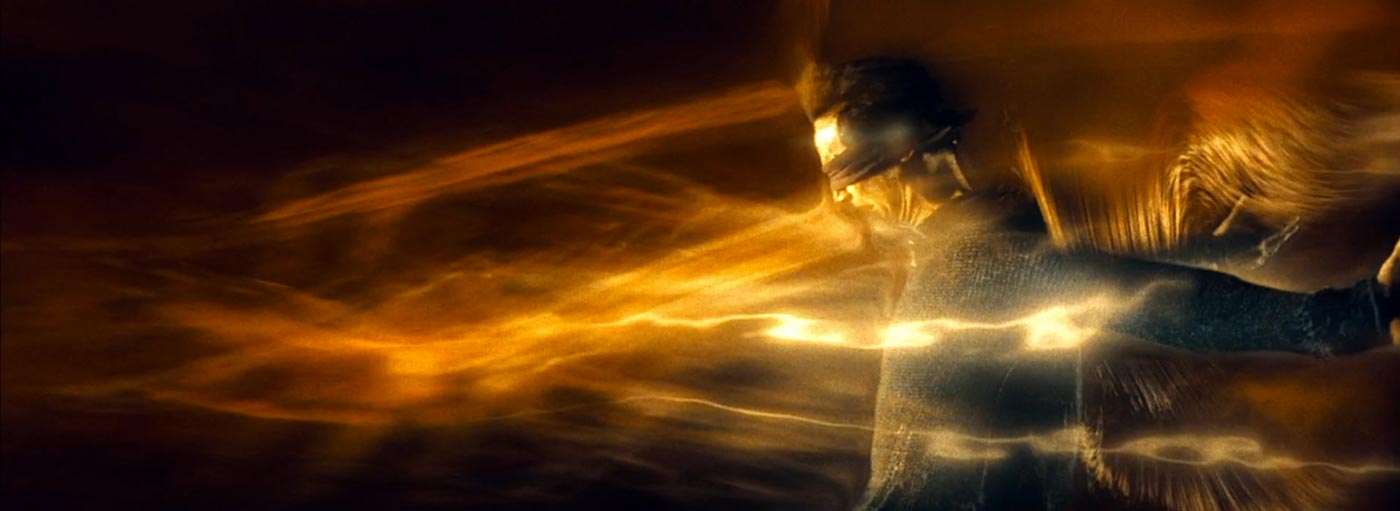
And so I waited patiently at home for the next two weeks, never hearing even a peep back from Tippett. I thought I’d been like so many others before, just another pass for them. Then the phone rang and I was asked if I was interested in a job at Tippett Studio. I remember being beside myself, thinking that what I’d worked for over a decade had finally paid off. So I answered “I’d love to come and work with you guys on Starship Troopers, thank you so much for the opportunity.” She replied, “No, you won’t be working on ST2, instead your joining The Matrix team if your interested?” Yeah I’m in !

The Matrix pretty much encompassed everything I loved about filmmaking and to this day stands as the high watermark of my career. I can still recall entering the building (The ‘Firehouse’, an old converted fire department bldg) and passing the life-sized Stan Winston “Matrix Sentinel” sculpture in the entranceway. Every day was not only inspiring but a reaffirmation of a philosophy I’d developed over the years, that I must admit was not entirely of my own making (what is). Someone very near and dear to me had turned me on to the notion of a “seamless life”, where your work and your play are the same. More specifically that when you trade your day job for meaningless pay, and wait for your leisure time to really live your life, that your inherently out of balance. More so what a colossal waste of your life’s energy and potential. However when your work is what you love, it ceases to be work oftentimes, and there can be little regret for a life unrealized.
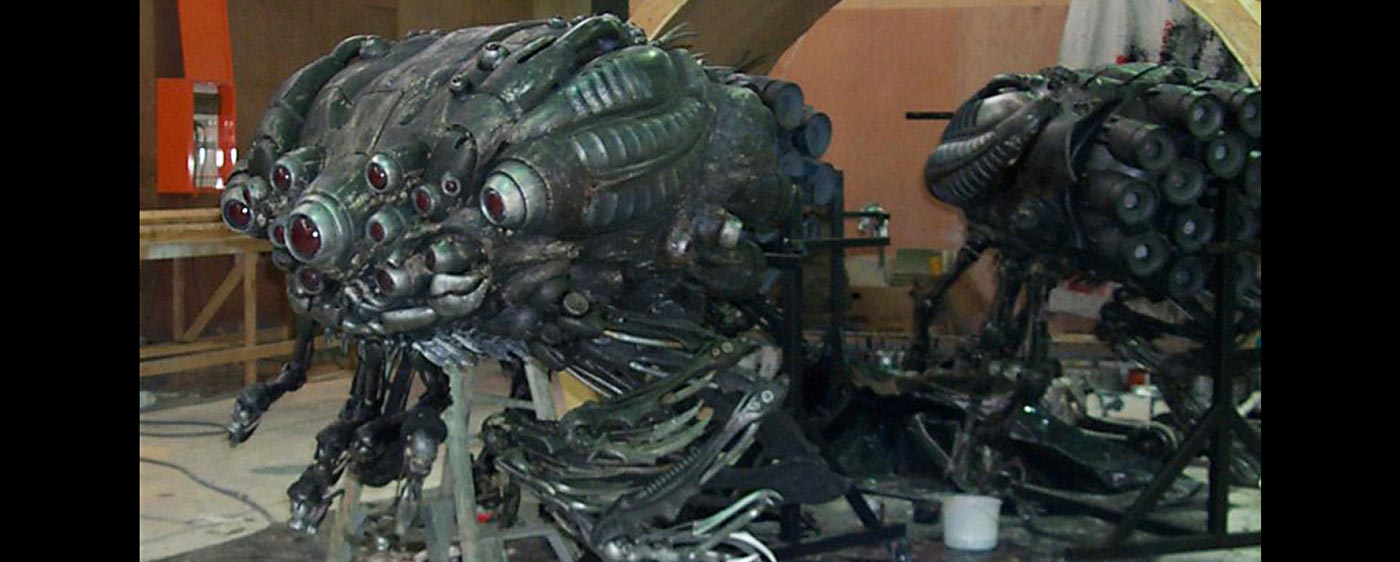
I got lucky finding work I love and finding success in it to boot. In another story I’ll turn back the pages even further to share what led to this interest and commitment in being a filmmaker. In short a decade of ditches dug traveling alone around the US, working a wide variety of menial jobs for vermin bosses and bum pay. Deals with the likes of loan sharks and violent thugs intent on extracting a dollar from yours truly. As lucky as I may have been finding my bliss, I dug deep in this ocean of possibilities before coming up with this pearl, wading through much muck. Hopefully for others there is a more direct path ?!
Of course these experiences, certainly this path less traveled, had an added benefit in providing the fodder I can write and reflect upon now through the medium of film !
